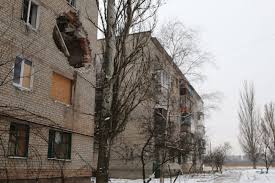The International Studies Association (ISA) convention theme this year was “Understanding Change in World Politics.” The theme is set every year by the president and program chairs in an attempt to introduce an overarching coherence to the program. The president invites noted scholars to organize roundtables and panels linked to the conference theme. This year’s call for proposals observed that:
“[m]uch of international relations theory is poorly equipped to understand change. Standard realist theories have little to say about peaceful change, although liberalism proposes several strategies for change and constructivism has focused on ideational change. Yet, we still lack a proper understanding of when and how change happens and how states and international institutions can adapt to transforming world politics peacefully.”
Paper and panel proposals were thus invited dealing with different aspects of the concept of change.
One such panel was “Power Shifts and International Conflict” organized by Jack S. Levy (Rutgers). The session sought to answer: Under what conditions and through what causal mechanism shifts in power between states are most likely to lead to war between a rising and declining state?
Another panel, “Making Change Peaceful: Exploring Mechanisms,” organized by Peter Marcus Kristensen and Ole Waever (both at the University of Copenhagen), explored a number of possible mechanisms that could facilitate peaceful change: spheres of influence, justice, appeasement, international government, and recognition. The goal was to update these mechanisms with a look back at the infancy of the discipline (the interwar years) across to the age of rising global powers.
A presidential roundtable titled “Changing Notions of Change in World Politics” organized by John M. Owen and Jeffrey W. Legro (both at University of Virginia) asked panelists to reconsider the notion of change itself. In Owen’s formulation, if power is indeed shifting away from the United States, then realism itself would seem to imply that we ask: Is the central problem in world politics, as stated by realism itself, mostly a problem of the declining hegemon? Panelists thus reflected on what change meant and what kind of changes were currently underway, with Amitav Acharya (American University) arguing that the liberal order was over. Fiona Adamson (SOAS) was more optimistic about the resilience of the order and thought the current crisis may push the international community toward more lasting solutions.
I should note that at least in my experience, the annual ISA conference theme is usually bit of an empty shell. Because the theme has to be articulated broadly enough to capture all the different approaches to international relations, panels organized under this heading often have a “tacked on” flavour—as if they were going to be about X anyway and then the conference theme (whatever it is that year) is added on top of it. This year felt different. People really engaged with the conference theme because it certainly does feel as if real changes are afoot, both internationally and domestically (some of which are affecting us personally as academics). Thus, nobody challenged the relevance of the theme this year, and even though we carried on with our academic debates as usual, the questions and answers felt like they had a little bit more urgency.
The title can be translated as: “What goes around comes around.”
Also see:
Academic Conferences in an Era of Populist Nationalism (ISA Dispatch 1/3)











